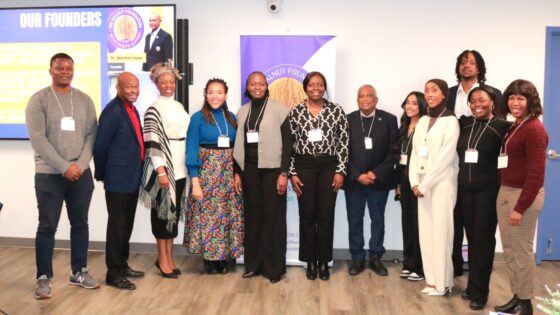on
BY SIMONE J. SMITH
Governments around the world have been facing new challenges from citizens calling into question existing democratic practices and principles, and for good reason. Over the last two years, we have seen a decrease in the confidence we have in our leaders. There are public opinion surveys that reveal growing disenchantment in many countries dating back some thirty years. Canada, subject to many of the same forces driving democratic discontent globally, has not been immune to these trends.
Canadian citizens have opinions toward the basic political structures within which our government operates, attitudes that are equally important barometers of the vitality of a political system. What, for example, do you, the reader, think of our electoral system?
This week I want to introduce information that was revealed to me from documents that many of you as voting citizens are completely unaware of. No worries, I have provided the links at the end of the article so that you can take a look for yourself.
I recently learned about the existence of Mandate Letters that are provided to our Federal Ministers. Mandate Letters are provided by the Prime Minister that outline the objectives that each minister will work to accomplish, as well as the pressing challenges they will address in their role. Before we go any further, it is worth noting that there is no indication that we as Canadian citizens have any input on any of these directives, which begs the question of how exactly are these objectives determined? Are political parties effective vehicles for the representation of societal interests?
It leads me to even more questions that we as Canadian citizens need to consider:
- Could the average Canadian be considered a key asset of his country?
- Are we participants or consumers of government programs?
- Could things be improved by bringing the customers, for lack of a better term, into the loop?
Below are a few highlights from each of the mandate letters. There are several items listed that are worthy of raised eyebrows, investigating further, and deeper discussion at a community level. Topics mentioned often include: vaccination, vaccination mandates, vaccine purchases, proof of vaccination programs, and participation in UN Agenda 2030. Let’s take a look at what is not being reported on mainstream media.
Delivery of the next phase of Smart Cities
Launched in 2020, UN-Habitat’s flagship programme “People-Centered Smart Cities” acknowledges the transformative potential that digital technologies can have for sustainable urban development. Through the People-Centered Smart Cities flagship programme, UN-Habitat provides strategic and technical support on digital transformation to national, regional and local governments.
According to UN-Habitat, digital transformation is now critical to meet the demands of sustainable urban development. In the past decade, internet connectivity has become a requisite for full participation in society, including access to education, affordable housing, and critical government services — yet 3.7 billion people were offline in 2019, along with thousands who were offline when Rogers went down a week and a half ago.
Are we ready for Smart Cities? We have had two severe network disruptions in the last two years. Imagine the impact of this on a Smart City. Something to think about!
Protecting the citizens from foreign interference and disinformation
One of the mandates aims to continue to lead an integrated government response to protect Canada’s democratic institutions, including the federal electoral process, against foreign interference and disinformation. This is to be done by working with domestic and international partners. The minister must lead efforts to consider the interplay between technology and democracy.
Here is the issue with this; who determines what disinformation is? Is it just the few that have not only financial, but political power? Where does that leave you and I? Do we not have valid points that are worthy of consideration? Is it considered disinformation because the information is not coming from their chosen few? Who are they really protecting: themselves or us?
COVID-19 and Vaccine Rollouts
I was not surprised that this encompassed a majority of their mandates. Ministers were urged to work with colleagues, provinces and territories, municipalities, Indigenous communities and other partners to continue the rollout of COVID-19 vaccines.
Working with colleagues they must continue to ensure sufficient domestic supply of COVID-19 vaccines and therapeutics, evaluate the border posture and ensure surge capacity supports are available to assist provinces and territories.
Ministers are to work with provinces and territories, municipalities, Indigenous organizations, the private sector and other partners to continue to ensure implementation of and adherence to public health measures, and support the availability of rapid tests and self-tests.
They are looking to launch a COVID-19 Proof of Vaccination Fund to support provinces and territories who implement a requirement proof of vaccine credentials in their jurisdiction for non-essential businesses and public spaces.
With the support of the Minister of Foreign Affairs, Ministers are to work with the Minister of International Development to continue to reinforce international efforts to ensure that people around the world have access to health interventions to fight COVID-19, including vaccines, therapeutics and strengthened health systems.
With the support of the Minister of Foreign Affairs, Ministers are to work with the Minister of Health to continue to reinforce international efforts to ensure that people around the world have access to health interventions to fight COVID-19, including donating at least 200 million vaccine doses to vulnerable populations around the world through COVAX by the end of 2022, and providing additional funding for enhanced testing and vaccine production capacity in developing countries.
Protecting the rights of Independent Media and Journalists
I found this section interesting. One of the mandates was focused on defending the right to freedom of expression and opposing the mistreatment or arbitrary detention of journalists, including by building on the work of Media Freedom.
The Media Freedom Coalition (MFC) is a cross-regional collaboration with 52 countries. These countries are working together proactively to advocate for media freedom at home and abroad. They advocate for the safety of journalists and media workers and hold to account those who harm them and severely restrict them from doing their job. It does so by:
- Raising individual cases and situations where individuals practicing journalism, as well as media organizations, have come under threat
- Making collective statements, to shine a global spotlight on media freedom and the safety of journalists
The mandates also speak of continued efforts with the Minister of Justice and Attorney General of Canada to develop and introduce legislation as soon as possible to combat serious forms of harmful online content, to protect Canadians, and hold social media platforms and other online services accountable for the content they host. This legislation should be reflective of the feedback received during the recent consultations.
Who have they consulted? We as a larger ethnic media outlet have never been consulted on topics surrounding media, and how it affects the African-Indo-Caribbean community. I am going to leave this one right where it is. Anything else would be subjectively written.
Protecting citizens from Corrupt Officials and Authoritarian Governments
Oh boy! There is so much to say here, that I am going to once again be mindful and just report what is written in the mandates. Ministers are to work with international partners to help establish an International Anti-Corruption Court (cough), to prevent corrupt officials and authoritarian governments from impeding development that should benefit their citizens.
An International Anti-Corruption Court (IACC) would fill the crucial enforcement gap in the international framework for combating grand corruption. It would constitute a fair and effective forum for the prosecution and punishment of kleptocrats and their collaborators; deter others tempted to emulate their example; and recover, repatriate, and repurpose ill-gotten gains for the victims of grand corruption.
Convention Against Corruption (UNCAC) would require our government to have laws criminalizing varying forms of corruption. However, corrupt government officials – known as kleptocrats – have impunity in their own countries because they control the police, prosecutors, and courts. Sounds familiar.
There is so much that we as citizens do not know. In my research I discovered something promising. Technology now exists for Canadian voters to take control of the political system – an online “Democracy Operating System”
A “Democracy Operating System” (DOS) is an online software platform that allows ordinary Canadian citizens to discuss and vote on issues. It will ultimately take power from the political elite and put it into the hands of voters.
The ultimate goal of a DOS is to give citizens in Canada an organizational tool to take control of an out of control political system. Our current “representative” model of democracy allows a political elite to control Canada. Canada is the most centralized democracy in the world. A DOS is a participatory democratic system that operates on a real-time basis without reliance on a political class. It puts democracy squarely where it belongs – in the hands of the people.
What do you think community; could a Democratic Operating System be the answer to the current convoluted system that we are a part of? I guess only time will tell, but I do hope that this article provides some insight on how much is kept from us, and that something needs to be done build transparency in our great country.
Stay in the loop with exclusive news, stories, and insights—delivered straight to your inbox. No fluff, just real content that matters. Sign up today!
We, as humans are guaranteed certain things in life: stressors, taxes, bills and death are the first thoughts that pop to mind. It is not uncommon that many people find a hard time dealing with these daily life stressors, and at times will find themselves losing control over their lives. Simone Jennifer Smith’s great passion is using the gifts that have been given to her, to help educate her clients on how to live meaningful lives. The Hear to Help Team consists of powerfully motivated individuals, who like Simone, see that there is a need in this world; a need for real connection. As the founder and Director of Hear 2 Help, Simone leads a team that goes out into the community day to day, servicing families with their educational, legal and mental health needs.Her dedication shows in her Toronto Caribbean newspaper articles, and in her role as a host on the TCN TV Network.













